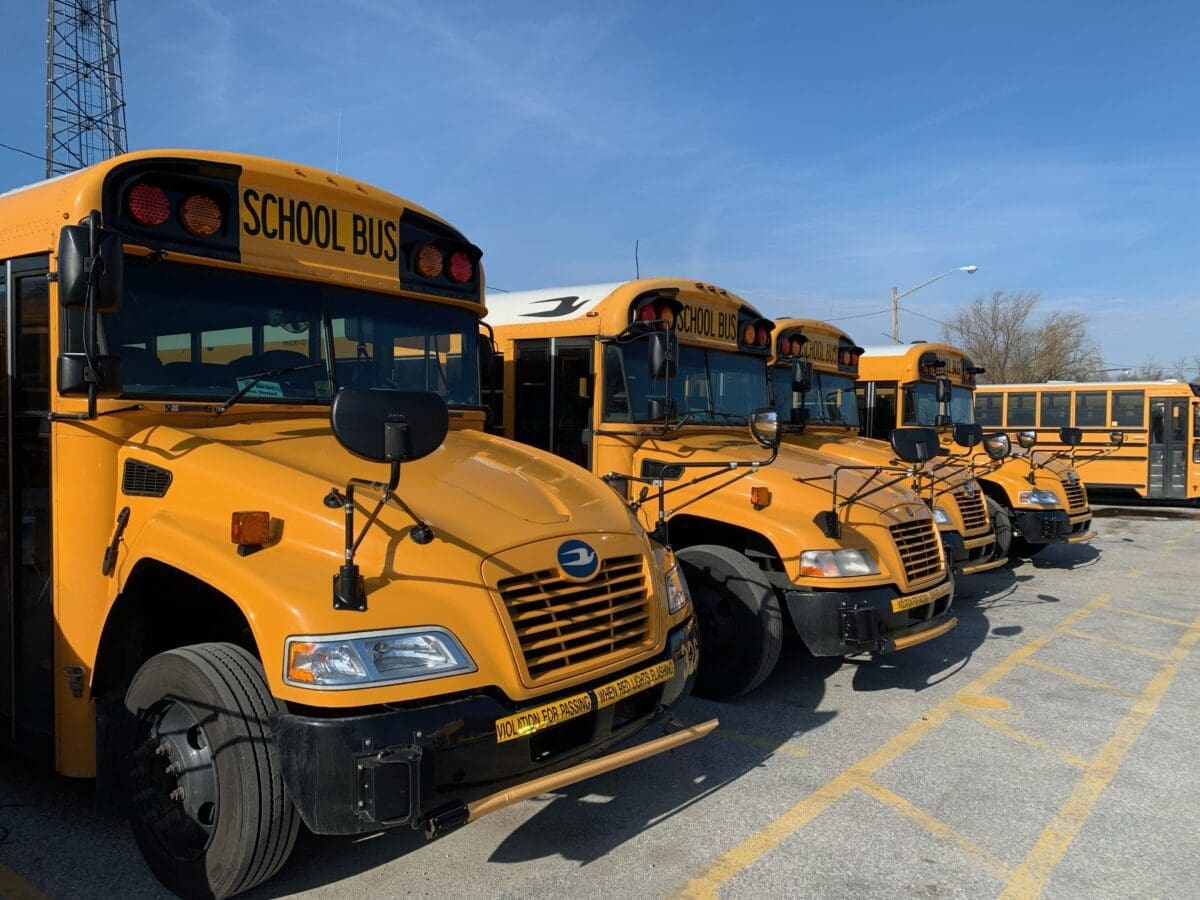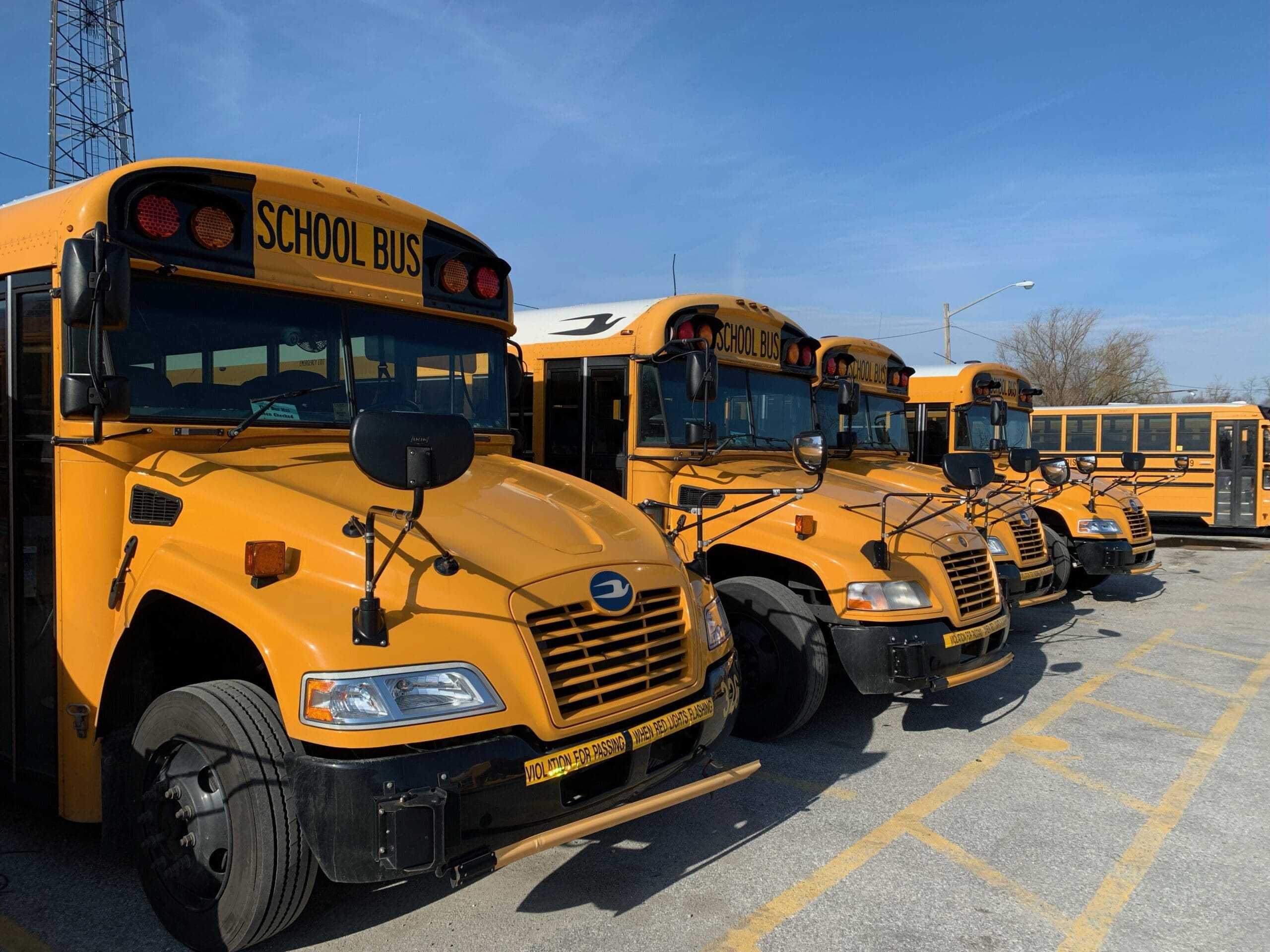With the 2023 General Assembly session ending in June, educational advocates are cheering the legislature’s action on early education, mental health support and transparency relating to school boards.
One leader, though, would like to see bills that focus on letting parents know clearly and precisely what’s happening in the classroom, starting with easy to find proficiency ratings.
About 60 bills related to education were passed this session.
Here’s what stood out to three of the state’s educational leaders:
Rodel
The Rodel Foundation of Delaware partners with policymakers, the private sector, nonprofits and practitioners to make systemic changes that can improve students’ lives.
Madeleine Bayard, vice president of Rodel, said this year’s legislative session was a carryover from 2022’s.
2022 EDUCATION LEGISLATION: Reading, teacher retention top successful 2022 education bills
“They had a strong focus again on education with more continued investments in high-needs student populations, opportunity funding and continued investment in mental health,” she said.
Delaware’s ongoing focus on the teacher shortage was illustrated, she said, when Gov. John Carney established a 9% increase in educator pay for the 2023-24 school year.
That increase is specific to the state share of educator pay. The state funds about 70% of what teachers and other school workers take home. Local districts fund the remaining 30%.
CARNEY ANNOUNCES RAISES: Carney to raise teacher salaries 9% starting in 2023-24
“We know we need to do more to keep up with Maryland and other surrounding states to recruit and retain teachers,” Bayard said, “but the investments in the budget in educator salaries and in early childhood were some of the most significant improvements.”
Maryland has passed legislation that would bring the starting salaries of teachers to $60,000 by July 1, 2026.
This prompted the state to create the Public Education Compensation Committee, which met throughout the 2022-2023 school year.
The 15-person committee has spent the year reviewing Delaware’s educator compensation structure and its ability to compete with other states to attract teachers.
In March, it voted to bump Delaware’s starting salary for teachers to $60,000 gradually over the next four years.
PLAN TO GET TEACHERS TO $60,000: Heated debate ends in vote to raise teacher pay over 4 years
Bayard applauded the state for allocating more funds for education in fiscal year 2024’s budget than this year’s budget.
There’s three highlights of early childhood investment in this legislative session, Bayard said:
- Doubling the funding for state-funded pre-K
The state will now allocate $12.2 million to the Early Childhood Assistance Program in order to serve more 3- and 4-year-olds and to provide programs with more resources.
The program is a state-funded early care and education program for eligible families, including those whose income is equal to or below the federal poverty level, families with children in foster care, families with children experiencing homelessness, and families with children with documented delays or disabilities.
- Bringing the purchase of childcare subsidy up to the benchmark by investing $10 million more
New rules change the eligibility for those who use the state’s Purchase of Care program. It helps low-wage workers afford child care so they can continue working.
Now those who make up to 200% of the poverty level can take advantage of the state program, and the change is expected to double the number of children who will have access to childcare.
FOCUS ON EARLY CHILDHOOD: Report: Despite early childhood ed gains, some kids need help
Specifically, families in Kent and Sussex counties benefit from the investment because there are far fewer early childhood facilities in those areas than in New Castle County. Childcare services can cost parents more than $20,000 a year to enroll their child into.
- Increasing funding for special education pre-K
This was done through House Bill 33, sponsored by Rep. Kim Williams, D-Marshallton and chair of the House Education Committee.
The legislation changes the current ratio of 12.8 students per education unit to 8.4 students per unit for preschoolers three years and older. That ratio had been in place for 20 years.
That change went into effect July 1.
It’s also the time students with disabilities in kindergarten through third grade will get the same funding change thanks to a 2021 law that aligned funding for students with disabilities for pre-K with kindergarten through 12th grade.
HB 33 DISCUSSION: Preschool special ed. funding bill draws staffing, money concerns
With the lower ratio, the state is ponying up an additional $4,438,304 in fiscal year 2024, $4,768,463 in fiscal year 2025 and $5,114,978 in fiscal year 2026.
“Those were really exciting and things that advocates have been fighting for for some time, so it’s exciting to see that response from the legislature,” Bayard said.
Bayard also pointed to the development of a teacher pipeline.
“Bringing the apprenticeship model into education is exciting and we’ve seen bills the last few years to build teacher residencies,to build grow-your-own programs,” she said. “Getting an earn-and-learn model for somebody who can be working, getting benefits and a salary, and also be working towards teacher certification is really exciting and something a number of other states have done but we’re excited to see that kicking off in Delaware.”
Grow-your-own programs help Delaware public schools develop educators from current public school students. They’re usually targeted towards high school students who have an interest in teaching. They allow students to get teaching practice while in high school and include an agreement for that student to come back and teach in the district after earning teaching credentials.
Outside of the classroom, Bayard recognized the holistic-approach to students the legislature has taken.
“There were a number of bills supporting families and children and what happens outside of school, which absolutely impacts what happens inside of school,” she said, “whether that’s about maternal and infant health, doula care, expanding mental health services and more.”
The state has continued to invest in school-based health centers, she pointed out, and has also passed bills that focus on protecting children from abuse.
“Students and their lives in and outside of school has been a growing focus,” she said.
Delaware Charter Schools Network
Kendall Massett, executive director of the Delaware Charter Schools Network, said one of the most important bills, especially to the charter school community, was House Bill 4.
It provides more behavioral health support to school districts and charter schools in the aftermath of a school-connected traumatic event.
The bill, dubbed “Nolan’s Law,” is named after a student at Wilmington Charter School who committed suicide on Jan. 2, 2022.
The law defines a school-connected traumatic event as the death of any student, educator, administrator, or other building employee of a public school.
The Department of Education is charged with developing guidance, best practices and written resources for schools dealing with a school-connected traumatic event.
She commended the new Speaker of the House, Valerie Longhurst, D-Bear, for her series of bills that have passed that focus on mental health support, such as students taking mental health days and schools hiring more mental health professionals.
“If they’re not mentally stable, or don’t have the support they need from a mental health standpoint, how can we expect them to be academically successful?” Massett said.
She also believes the legislature has taken a stance on making sure schools are transparent and families have access to the ins-and-outs of their children’s education.
One law that was passed this session requires school boards to hold public comment before their action items. This means community members will have a chance to share their thoughts before the board votes on different matters.
“Something I want to see in the future is that all boards have that across the state, not just for schools,” she said. “We’ve seen some boards make decisions and then have the public comment after. I don’t think that that’s helpful, and it’s certainly not transparent.”
Massett, whose grandfather was her first dentist, was happy that a law passed that would provide oral screenings to elementary school students.
Supporters of the law have said poor dental hygiene negatively affects a students social behaviors and distracts them from learning.
“So much of our health does stem from our teeth,” Massett said. “If our schools are the community hubs that we believe they are, which I do, then having the ability to care about mental health, to take care of dental pieces, the wraparound services make sure the whole child is healthy and that’s important and I did see that in our General Assembly this year.”
Wraparound services include before- and after- school programs, summer programs, interventions, tutoring, wellness centers, child care and other social services to help fill the gaps in a child’s wellbeing that might not be in the standard academic day.
Massett was also pleased with a law that requires 30% of the Department of Education’s school bus purchases to be electric by 2030, with a 5% increase each year starting in 2025.
“We’re always looking for that next best thing for not just our kids, not just our schools, but our environment that we live in,” she said.
First State Educate
First State Educate, a state advocacy group that wants to create changes in schools to prepare children for productive and fulfilling lives, has been actively engaging parents through seminars and school board candidate forums.
Executive director, Laurisa Schutt, said that the group works toward a time when bills put student success first, regardless of the politics.
“If we want a state where kids can read on grade level, families need to know when their kids don’t,” she said.
She pointed to a bill this session that would mandate school profiles – including reading and math proficiencies and high school pathway offerings – be available on the opening page of the Department of Education website, rather than have that information be buried.
“The bill was not voted on in the Senate,” she said. “This is a disappointment for basic and fundamental transparency. Fortunately, the Department of Education made some of the changes.”
She also cited Sen. Nicole Poore, D-Delaware City, who led an initiative that requires school district boards to add term dates and photos of each member to their websites.
“This simple change means families know who represents them and for how long, no more guessing,” Schutt said.
Engagement and demand rely on simple access to information, Schutt said, so families have tools to make decisions and solve problems collectively.
“Small changes add up in great ways” she said.


Raised in Doylestown, Pennsylvania, Jarek earned a B.A. in journalism and a B.A. in political science from Temple University in 2021. After running CNN’s Michael Smerconish’s YouTube channel, Jarek became a reporter for the Bucks County Herald before joining Delaware LIVE News.
Jarek can be reached by email at [email protected] or by phone at (215) 450-9982. Follow him on Twitter @jarekrutz and on LinkedIn
Share this Post









